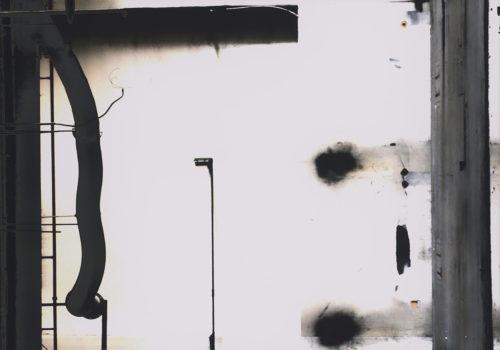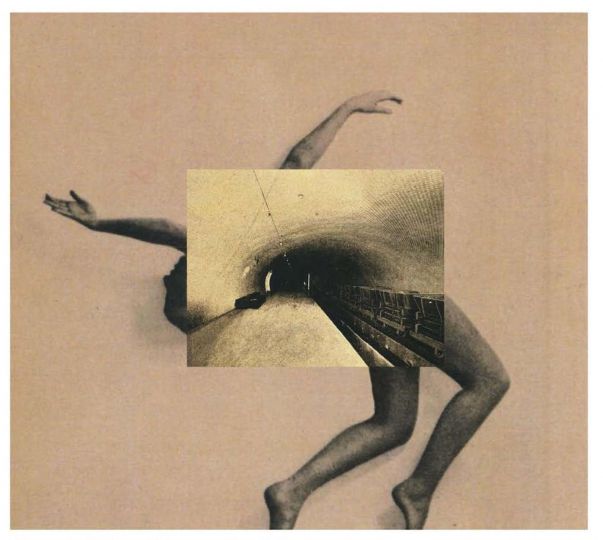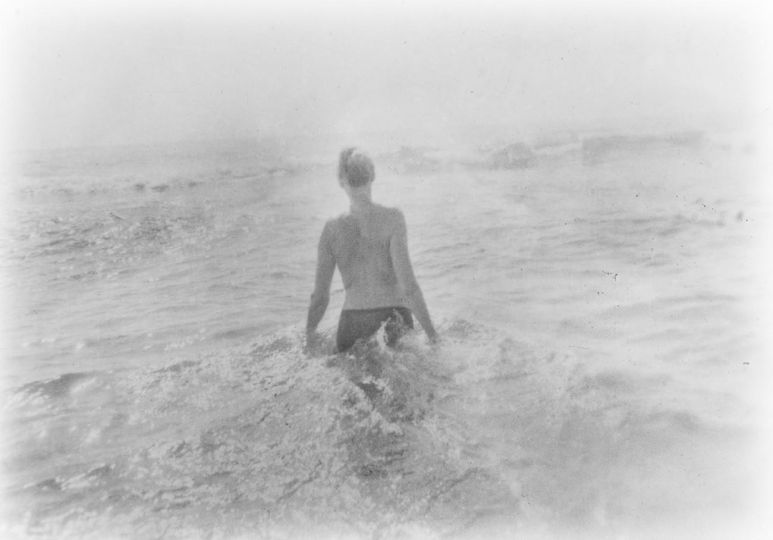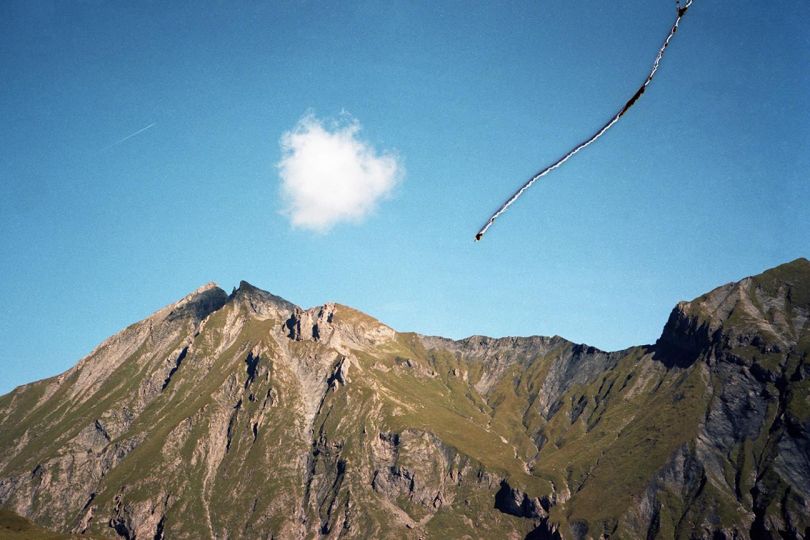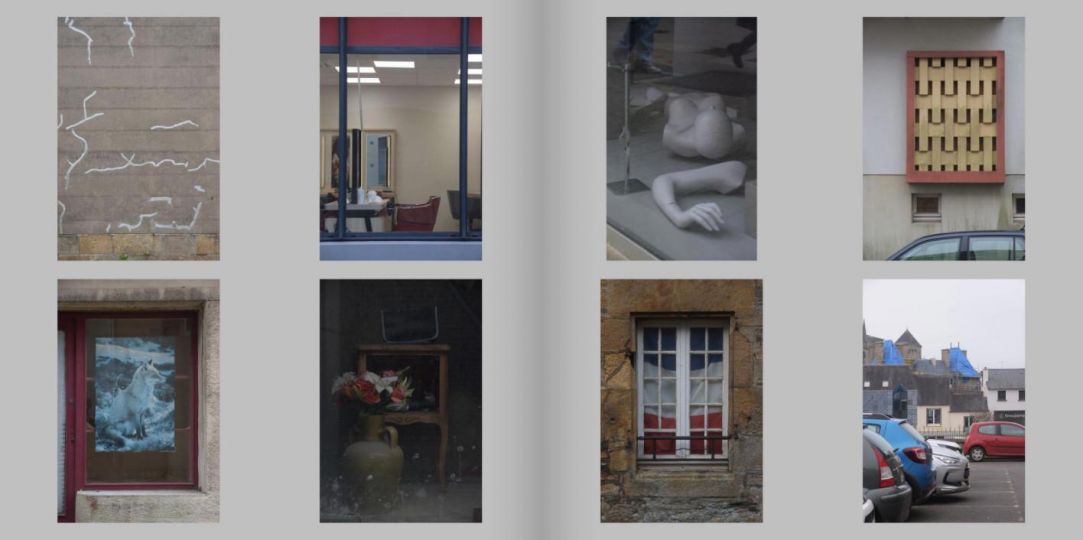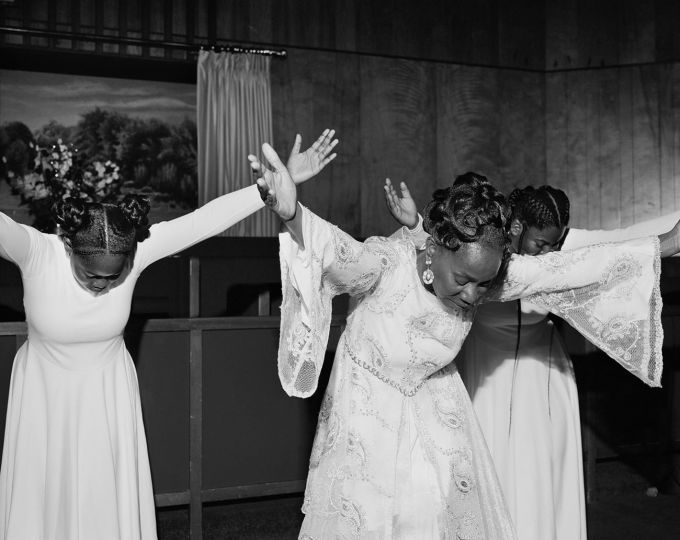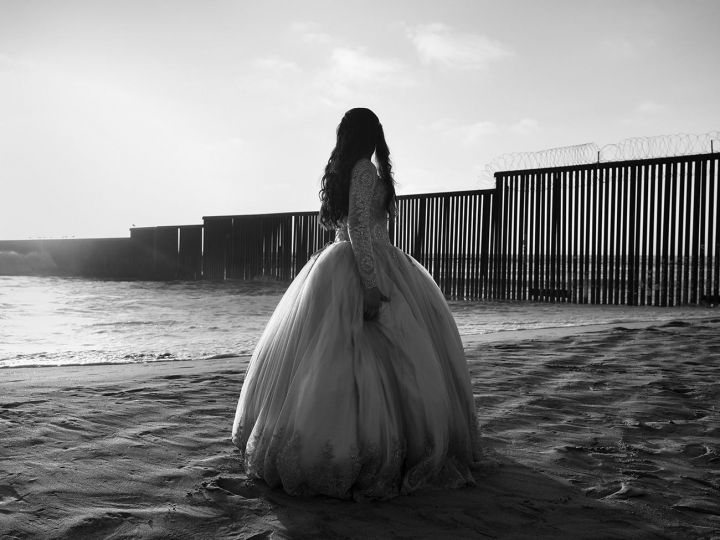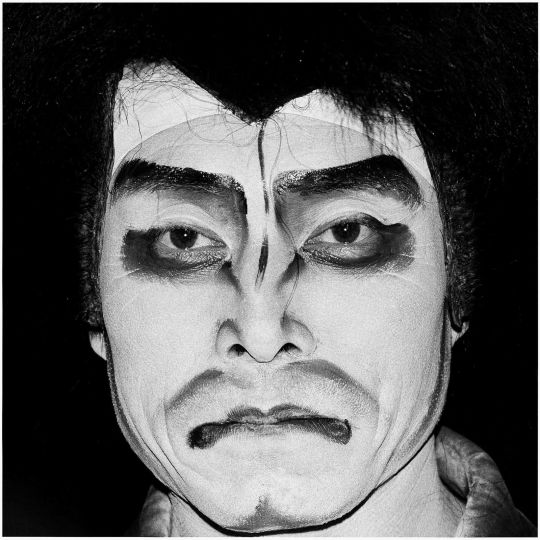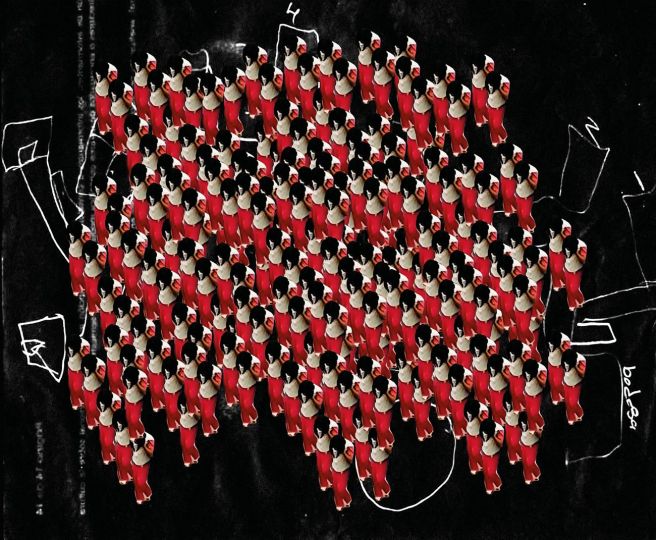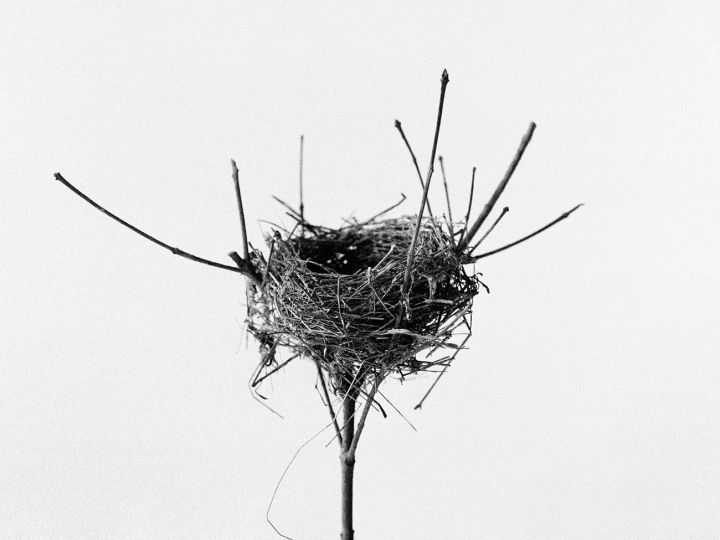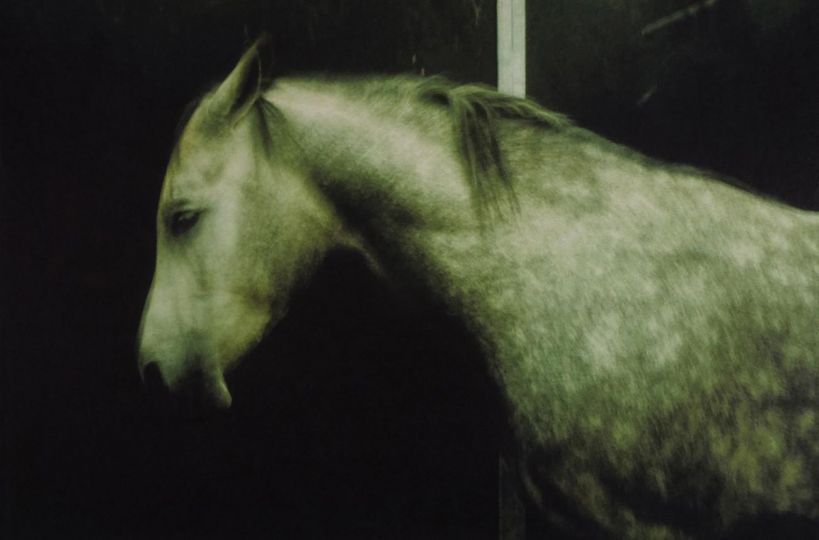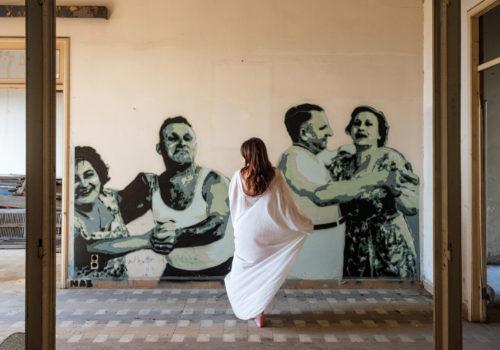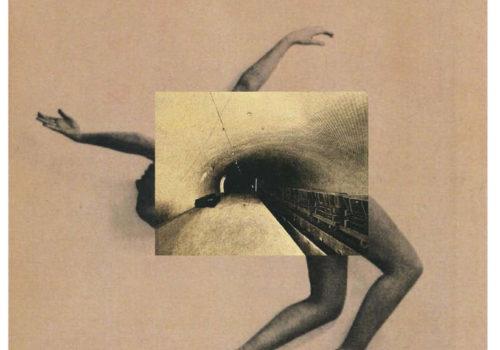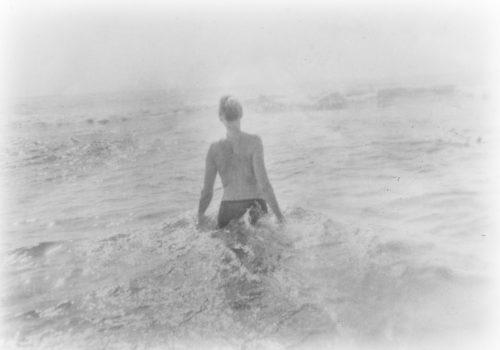Photographs occupy a special place in modern memorialisation practices – they are meant to capture the fragility of a moment and preserve it in as recognisable a way as possible. Some artists, however, deliberately choose more abstract forms of memorialisation instead.
In 2015–16, Geraldine Frisch photographed an abandoned factory shortly before its demolition. The place had absorbed the memories of its past, and the walls spoke of its history. Through her choice of angles and framing, the visible world takes on an enigmatic quality. At the same time, and in light of her own life experience, Frisch contemplates what it means to have roots in a place and how borders shift as a result of political upheaval. The idea of shifting borders also occupies Magdalena Jetelová. In 1992, she went to Iceland to trace the Mid-Atlantic Ridge with a laser beam. The mountain range marks the rift where, millions of years ago, the North American and Eurasian plates separated. By means of a simple line drawn somewhere in the middle of nowhere, the artist highlights the absurdity of marking borders. Meanwhile, in 1997, Hiroshi Sugimoto turned his attention to iconic buildings. Seen through his lens, their contours dissolve and shed their temporal context until they seem lost in time.
Photographic abstractions like these play with our perception and are analogous to how human memory and understanding work – they, too, are unclear and blurry, making them also ambiguous and open to interpretation.
Curator: Franziska Kunze
Abstract Horizons
June 14 until September 8, 2024
Pinakothek der Moderne
Room 26
Barer Str. 40
80333 München, Germany
www.pinakothek.de

